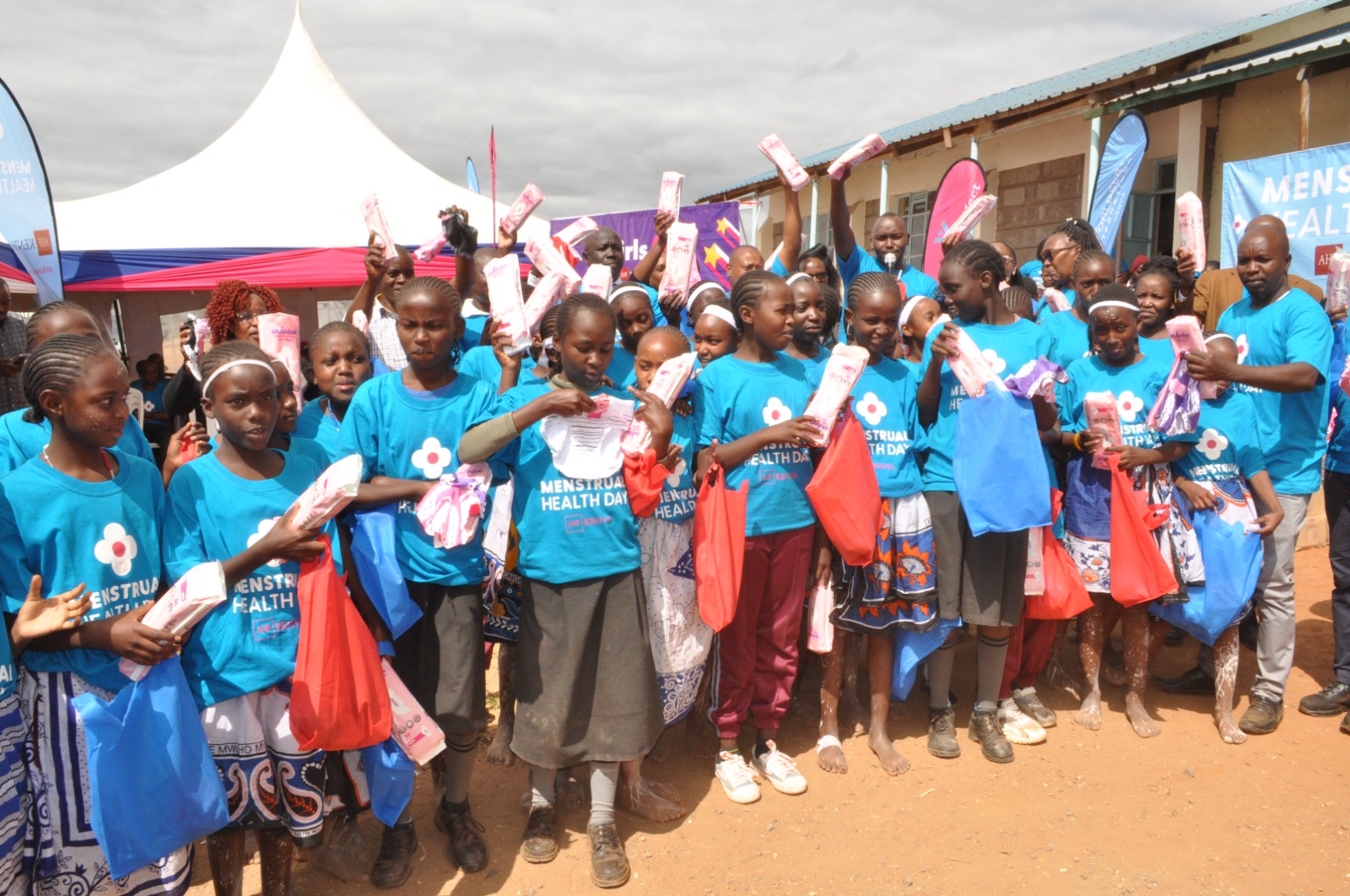
Period poverty remains a major challenge to the education of girls in low-income settlements, as well as in both urban and rural areas across Kenya.
Limited access to sanitary products, inadequate information on menstrual hygiene, and cultural stigma cause more than one million girls in Kenya to miss three to four days of school every month.
According to data from UNESCO, approximately one in every ten girls in sub-Saharan Africa misses school for three to four days each month during her menstrual cycle. This adds up to about six weeks of lost learning time in an academic year.
These frequent absences often result in long-term consequences, including declining academic performance, increased school dropout rates, and low self-esteem.
Ruth Kinyua from AIDS Healthcare Foundation Kenya emphasised that no girl should miss class due to a lack of sanitary towels.
Speaking at Saina Primary School in Kajiado County during an event to mark World Menstrual Hygiene Day, Kinyua stressed that access to menstrual hygiene products is not a luxury but a fundamental human right.
She called on well-wishers to support girls by donating sanitary towels to help them stay in school and live with dignity during their periods.
"Every sanitary pad donated is a gift of dignity and a step toward uninterrupted education for girls. No girl should miss school because of a lack of menstrual hygiene products," Kinyua said.
"I urge well-wishers to support girls by donating sanitary pads and enabling them to experience their menstrual periods with dignity."
Rita Seii, Programs Officer at World Vision Kenya, called for an end to traditions and taboos that force girls and women to remain indoors during their periods, describing such practices as discriminatory.
Seii highlighted the importance of menstrual hygiene education and awareness, expressing concern that girls from poor backgrounds still resort to using unhygienic materials such as old rags and clothes, often resulting in infections.
Kajiado County Public Health Officer Eddy Kimani also underscored the need to educate communities about menstrual hygiene to end period stigma.
Kimani noted that this year’s theme, “Period Friendly World,” aims to empower girls and women by normalising conversations about menstruation, dismantling harmful beliefs, and advancing menstrual equity.

















